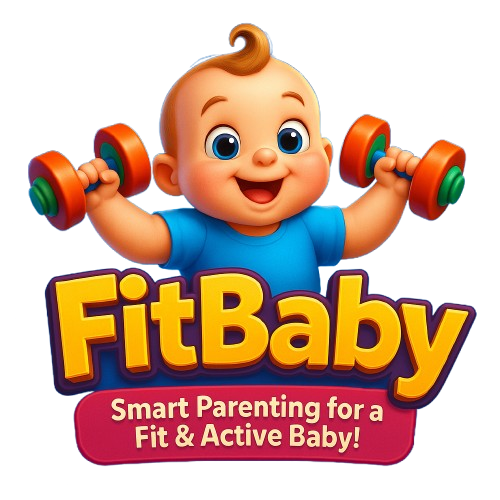Table of Contents
Introduction: Understanding Baby Cold
As parents, there’s nothing more heartbreaking than watching your little one struggle with a baby cold. While common colds are generally harmless, they can be uncomfortable and distressing for babies, especially under the age of one. Understanding the signs, causes, and safe treatments for baby cold is essential for every caregiver.

In this post, we will cover everything you need to know about baby cold – its causes, symptoms, natural remedies, when to see a doctor, and the best baby cold relief products that are safe and effective. (Amazon affiliate product links can be placed here)
What is a Baby Cold?
A baby cold is a viral infection that affects your baby’s nose and throat. It’s caused by viruses like rhinoviruses, RSV, or parainfluenza. Unlike adults, babies have immature immune systems, making them more susceptible to catching colds.
Most babies get 6 to 10 colds in their first year, especially if they attend daycare or have older siblings.
Common Symptoms of Baby ColdHere are some telltale signs that your baby has a cold:
- Runny or stuffy nose
- Sneezing
- Mild fever (below 101°F)
- Cough
- Irritability or fussiness
- Reduced appetite
- Trouble sleeping
- Slightly swollen lymph nodes
- Watery eyes

While a baby cold usually clears up within 7–10 days, it’s important to monitor your child’s symptoms closely.
Causes of Baby Cold
Colds in babies are caused by viruses transmitted through:
- Airborne droplets from a sneeze or cough
- Touching contaminated surfaces like toys or doorknobs
- Close contact with other infected children or adults
Since babies are always exploring with their hands and mouths, they’re more prone to catching viruses that lead to baby cold.
How to Treat Baby Cold Naturally at Home
While there’s no cure for the common cold, there are many safe and natural ways to relieve your baby’s symptoms and help them feel better faster.

1. Use a Nasal Aspirator
A nasal aspirator or bulb syringe gently removes mucus from your baby’s nose, making breathing easier.
2. Run a Cool Mist Humidifier
Adding moisture to the air can help ease nasal congestion and soothe a dry throat.
3. Saline Drops
Saline drops are effective for loosening mucus and clearing nasal passages. A few drops in each nostril followed by suction can bring significant relief.
4. Keep Your Baby Hydrated
Offer breast milk or formula frequently. If your baby is older than 6 months, small sips of warm water can also help soothe their throat.
5. Elevate the Head Slightly
Let your baby sleep with their head slightly elevated to ease breathing. You can place a rolled towel under the mattress to raise it gently.
6. Give Extra Cuddles and Comfort
Skin-to-skin contact, cuddles, and soothing words go a long way in helping your baby feel safe and relaxed during a cold.
Over-the-Counter Baby Cold Relief Products
While most baby colds resolve on their own, you can try safe and pediatrician-approved products that offer comfort and faster relief.
Here are some top-rated baby cold relief products available online:
- Baby chest rub with eucalyptus and lavender
- All-natural baby cold and cough syrup
- Vitamin C drops or immunity boosters for babies
- Thermometers for tracking baby’s fever
- Herbal vapor patches for safe congestion relief
What NOT to Do When Your Baby Has a Cold
Avoid these common mistakes when dealing with a baby cold:
- Do not give cold medicines without a doctor’s approval (especially under age 2)
- Avoid honey for babies under 1 year—it can cause infant botulism
- Don’t overdress your baby – keep them comfortable and at a normal temperature
- Don’t ignore warning signs – if symptoms worsen, always consult a pediatrician

When to See a Doctor
You should contact your pediatrician immediately if your baby has any of these symptoms:
- Fever above 100.4°F (for infants under 3 months)
- Difficulty breathing or wheezing
- Refusal to eat or drink
- Dehydration (dry mouth, no tears, fewer wet diapers)
- Symptoms lasting more than 10 days
- Ear pulling or signs of ear infection

While a baby cold is usually mild, babies can quickly develop complications, so don’t hesitate to seek medical advice.
How to Prevent Baby Cold
Here are some simple steps to reduce your baby’s risk of catching a cold:
- Wash your hands before touching your baby
- Keep your baby away from sick people
- Disinfect toys and surfaces regularly
- Breastfeed to boost your baby’s immunity
- Avoid crowded places during flu season

Final Thoughts
A baby cold might be a common part of early childhood, but as a parent, your love, care, and informed actions can make all the difference in how your baby copes and recovers. Whether it’s using a humidifier, saline drops, or natural remedies, the key is to keep your baby comfortable, hydrated, and well-rested.
For additional support, check out these highly recommended baby cold relief products that are safe and effective:

FAQs About Baby Cold
Q: How long does a baby cold last?
A: Most baby colds last 7–10 days with proper care.
Q: Can a baby catch a cold from sleeping in air conditioning?
A: AC doesn’t cause colds directly, but dry air may irritate nasal passages. Use a humidifier if needed.
Q: Is it safe to give baby cough syrup for cold?
A: Not without a pediatrician’s recommendation, especially for babies under 2 years.
Q: Can I bathe my baby during a cold?
A: Yes, a warm bath can help soothe your baby and reduce congestion.
Use This Opportunity to Be Prepared
Dealing with a baby cold can be tough, but having the right knowledge and tools at your fingertips makes all the difference. Bookmark this guide and stock up on baby cold essentials so you’re ready the next time sniffles strike.
Read more about Baby Car Seat Safety: A Complete Guide for New Parents

